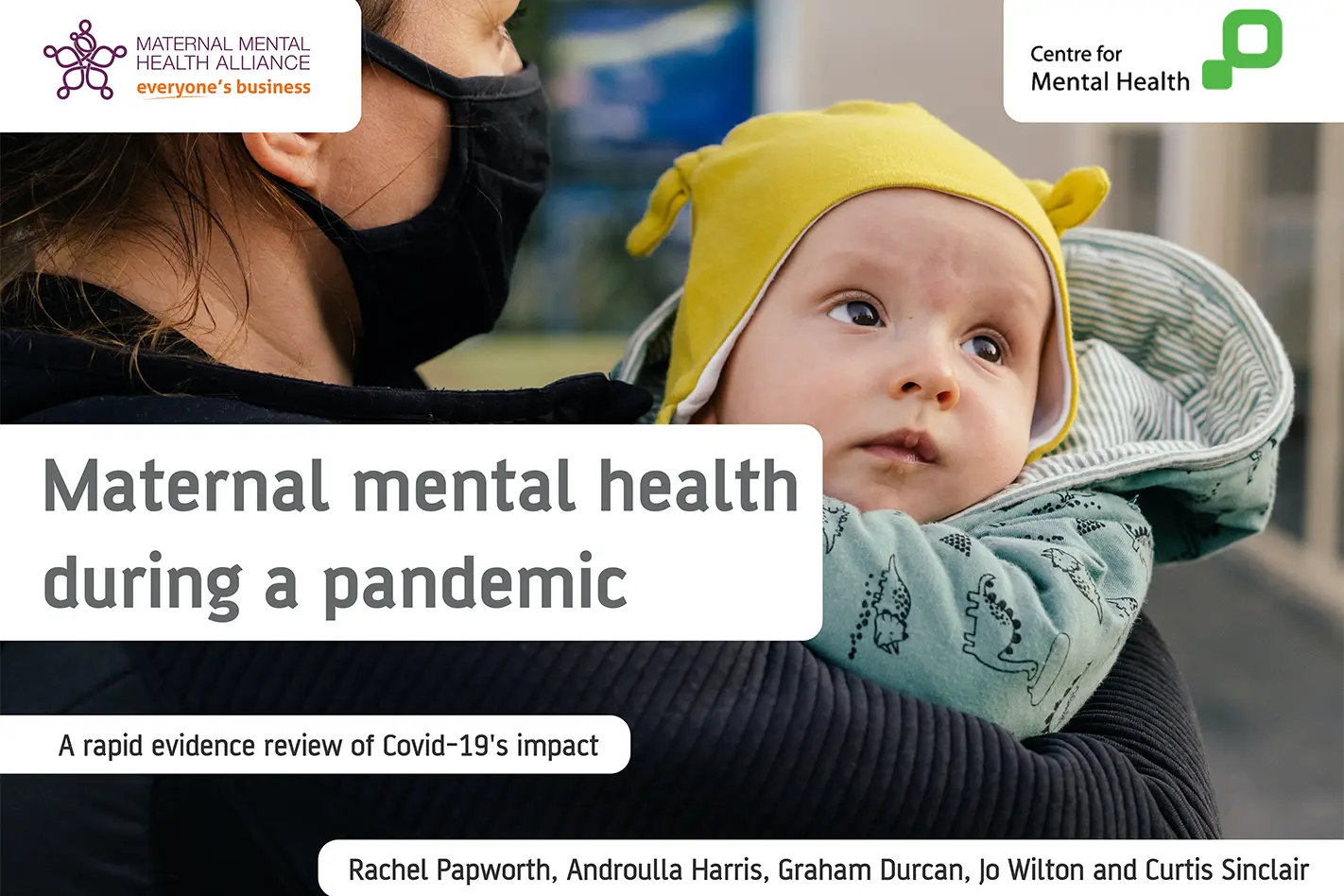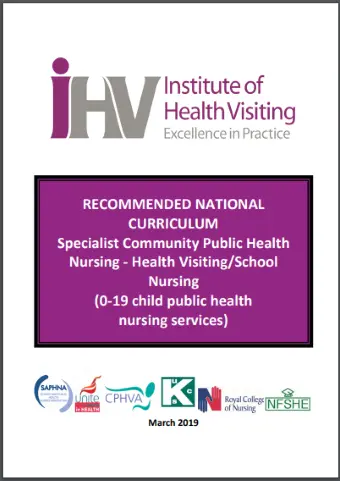The iHV is delighted to have supported the launch of the new report on maternal mental health and the services that supported women and their families during the COVID-19 pandemic. We would like to put on record our thanks to the Alliance for undertaking this work and creating a public opportunity today for us to come together, to think together about the findings and their important implications for families now – need is great and families can’t wait.

Today’s report brings together, for the first time, all of the available data collected during the pandemic looking at the mental health challenges that women during and after pregnancy have faced. The evidence shows a significant increase in maternal mental health problems across the UK over the last 12 months
Speaking at the launch event today, iHV Mental Health Lead, Melita Walker highlighted the important role that health visitors play in identifying and supporting families experiencing mental health challenges, saying:
“Health visitors are qualified nurses or midwives who go on to study at a specialist level in public health to become health visitors. Every family has a health visitor, and they are there to support all members of the family to enjoy good health. Health is affected by a multitude of things so health visitors may be working with families to support a very broad range of need, and those needs, left unsupported as this report shows, can actually tip families into experiencing mental health problems. Health visitors have a vital role in promoting good mental health, preventing mental health problems, identifying them early, offering evidence-based interventions and care coordination when more specialist services are needed. Family mental health and wellbeing is “the bread and butter” of health visiting.
The perinatal period is a vulnerable time for the acute onset and recurrence of mental disorders. When these vulnerabilities are combined with the impact of a pandemic, mental health problems and health inequalities are affected further. We have seen parents struggling with isolation, and sadly, we are seeing an increase in, domestic abuse, child poverty, substance misuse and child maltreatment. Rates of mental health problems are increased and inequalities are widening. The impact of lockdown has been unevenly distributed and families with lower incomes, from Black, Asian and minority ethnic communities and young parents are experiencing the most detrimental consequences due to compounding factors like overcrowded housing with lack of outdoor space, the effects of poverty, which all have an impact on parental stress, anxiety and predisposition to mental illness. The family centred holistic role of the health visitor cuts across and can make a difference in all of these areas- thus positively and proactively supporting good family mental health alongside a range of other health outcomes.
That said, health visitors can only make a difference if we have sufficient numbers of them and this report highlights that health visitors in England went into the pandemic in a hugely depleted state due to years of cuts to the health visiting service. The first two years of a child’s life are important, and the right support and guidance for families at this time can make a big difference to their long-term outcomes. HVs can be a lifeline for families and the iHV ‘s position from very early on in this pandemic was that there was “more than one frontline” and sustaining support for families’ needed to be a priority and that health visitors should not be redeployed.
It is important to note that many local authorities in England did not redeploy their health visitors, but 65% redeployed at least one health visitor and redeployment ranged from no health visitors being redeployed in some areas, to 63%, of the HV team being redeployed. Over 11% of local authorities lost over a quarter of their HVs. So, we can see, with redeployment rates differing substantially, young children and families’ access to health visiting services was determined by their postcode.
The iHV campaigned vigorously from the outset about redeployment and we were very relieved when England’s chief nursing officer Ruth May , Public Health England & the Local Government Authority sent a letter to all the CNOs stating that HVs provide ‘frontline’ work and should not be redeployed.
The learning we have now, and the swell of collective voices, hopefully means that we can be confident going forward in this and any future pandemic, that health visitors will remain on their own frontline. We are also very optimistic that the Leadsom review will contain some significant measures to strengthen the HV offer for families.
There has been a lot of learning from and throughout this pandemic and we must pay tribute to all the health visitors who continue to work really hard in some very challenging circumstances to find ways to stay alongside families to make sure they receive the care and support they need for their mental health. We have heard of some fantastic examples of health visitors turning to new ways of working and to get all of this up and running in the speed that they have is commendable.
Health visitors are telling us that virtual and digital help has allowed them to reach parents in the absence of being able to visit, and there may well be some of the virtual offers kept after restrictions have eased. They are also telling us very firmly, as is the emerging evidence included in this report, that virtual should not replace face to face contacts.
The research is showing us that there are significant increased MH problems in parents who have experienced becoming a parent during the pandemic. If we are to meet this need then all services need to work together as a system, and all parts of that system need to be strong.
We know a robust home visiting – health visiting service works- we need to build back our health visitor numbers because as this report shows, health visitors are a critical part of the solution for achieving good family mental health and wellbeing”.






